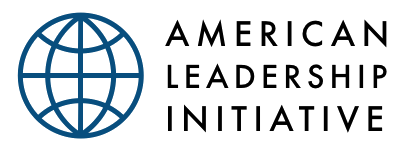America Can Use Supply Chains to Achieve New Foreign Policy Goals
/Author: ALI CEO Orit Frenkel, as published in The Hill, March 27, 2022
National security concerns regarding China and supply chain shortages spurred by the pandemic have led to a bipartisan momentum to shore up American competitiveness and encourage U.S. manufacturing. Russia’s war in Ukraine and the resulting sanctions on Russia have raised new interest in reducing U.S. supply chain dependency on these autocratic regimes.
In late February, the White House released a plan to revitalize American manufacturing and secure critical supply chains, which details how to rebuild domestic supply chains by invigorating the U.S. industrial base. This policy shift towards restoring American competitiveness and manufacturing is also seen in the United States Innovation and Competition Act (USICA), a 2021 Senate bill aimed at countering China’s influence, and the House-passed America COMPETES Act of 2022.
Since not everything can be produced in America, the United States should strive to “right-shore” global supply chains to achieve a range of foreign policy goals. Working with allies and partners, this “friend-shoring” can be an important part of supplier resilience, especially when moving sourcing for key technologies out of China — for example, the effort to coordinate semiconductor supply chains under the U.S.-EU Tech and Trade Council. Concern about the ability to access certain goods quickly is an argument for turning to countries closer to America, such as Canada and Mexico, to allow for ground shipment and eliminate port delays.
Rethinking U.S. supply chains creates an opportunity to think strategically about new foreign policy goals and incentives to support those goals. It is time to encourage growth in developing countries that have strategic importance, to advance labor and human rights, and to support decarbonization.
Supporting countries of strategic interest
U.S. trade policy historically has been part of its broader geopolitical strategy, typically by using tariff preference programs to support growth in key developing countries. Tariff preference programs, such as the Generalized System of Preferences or the African Growth and Opportunity Act, and free-trade agreements, such as the Central America Free Trade Agreement, eliminate most tariffs for those countries’ goods entering the U.S.
The Biden administration has initiated a program to encourage private sector investment in the Northern Triangle — El Salvador, Guatemala and Honduras — with the goal of spurring economic development to reduce the incentive for migration from those countries to the United States. This program engages the State Department, USAID and other agencies to support U.S. companies looking to invest or source there. For companies wanting to relocate textile manufacturing from Xinjiang, the Northern Triangle countries are an option to explore.
This effort can be a model for supporting other developing countries, notably in Africa, as a counter to China’s heavy investment in the region and as an investment in the rule of law and U.S. national security.
Supporting labor and human rights
The import of goods using forced labor has been prohibited since the Tariff Act of 1930, although the law was underutilized until recently. In 2016, the prohibition was tightened and U.S. Customs and Border Control began enforcing it more aggressively.
In December, President Biden signed the Uyghur Forced Labor Prevention Act, which bans imports from Xinjiang and seeks to ensure that goods produced wholly or in part with forced labor in other areas of China do not enter the U.S. The law also calls on the United States to lead international efforts to end forced labor practices around the globe and to coordinate with Mexico and Canada to implement the USMCA prohibition on importing goods produced by forced labor into the three countries.
This prohibition on imports produced with forced labor is an important example of ways to advance labor rights and human rights through supply chain regulations. As companies move sourcing out of China, they should be encouraged to shift to countries with higher labor standards.
Supporting decarbonization
In recent years, the U.S. increasingly has incorporated environmental measures in its trade agreements to incentivize greener practices. A rethinking of supply chains can encourage green sourcing as well.
In a recent path-breaking agreement on steel and aluminum, the United States and the European Union agreed to address carbon intensity and overcapacity of high-carbon steel and aluminum. This arrangement is meant to discourage the production of high-carbon steel and aluminum and ensure domestic policies to lower the carbon intensity of these industries, and it could be a model for the U.S. to achieve lower-carbon production in other sectors.
All these ideas open the door for the United States to use supply chains to accomplish new foreign policy priorities. The Biden administration’s plan for a U.S.-led Indo-Pacific Economic Framework (IPEF) includes pillars that will encourage countries to commit to higher labor and environmental standards. The U.S. should reward countries that adopt these standards by encouraging private sector sourcing from such locations.
Taken together, the IPEF, the U.S.-EU steel and aluminum agreement, the sanctions on Xinjiang, and the initiative to encourage sourcing from the Northern Triangle illustrate ways that the U.S. can use supply chains to achieve new foreign policy goals.



